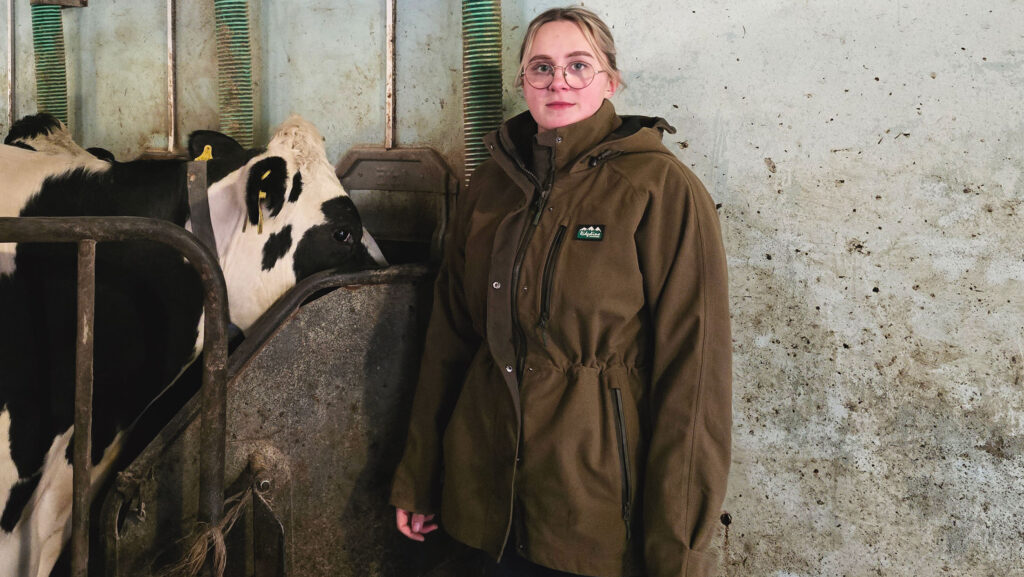TB breakdowns take toll on Welsh dairy farmer
 Mary Raymond © Mary Raymond
Mary Raymond © Mary Raymond A Pembrokeshire dairy farmer has spoken of her anguish after a further 26 dairy cows have been taken following a positive TB test, reducing the milking herd to 190.
Mary Raymond spoke to Farmers Weekly two years ago when 55 cows at Trenewydd Fawr, in Croesgoch, Haverfordwest, were removed following a positive TB test in one of the farm business’s two dairy herds.
See also: TB breakdown takes toll on young farmer’s mental health
Since then nothing has changed, she says, with the family now reducing labour on farm to keep the dairy enterprise going, which should be milking in excess of 360 cows.
Ms Raymond, whose grandfather is the former NFU president Meurig Raymond, reckons losing the last batch of cows has cost the business £63,500 – including the value of the calves lost.
Biosecurity measures
To reduce risk of wildlife transmission, the family have put biosecurity measures in place, including secure storage of silage and lifting water troughs and lick-tubs off the floor.
Access to the river has also been blocked off and iodine dips are kept outside the sheds for workers to disinfect their boots.
“We can’t get rid of it [bovine TB]. It just won’t go away,” said Ms Raymond.
In addition to the mental strain, there are further financial implications for the business with the latest TB herd breakdown.
“We’ve reduced labour costs already but taking 26 cows out of the herd, we’re getting less milk.
“There will come a point where this is no longer viable.”
When it’s time for a test, Ms Raymond says she feels down every time and can’t see light at the end of the tunnel.
“Every cow that goes through you wonder if she will go or not,” she said.
With cattle vaccination still a long way away, Ms Raymond has little hope for things improving.
“It makes me angry more than anything. TB tests really get you down in the dumps,” she said.
Wildlife control
A lack of support from the Welsh government and reluctance to tackle the disease in wildlife remain a frustration for her.
Referencing successful badger cull results in parts of England, Ms Raymond believes the TB in their dairy herd is coming from wildlife and it needs to be addressed.
“Everyone in this area has TB. It spreads from farm to farm through the wildlife,” she said.
“Government says there haven’t been any new TB cases – that’s because we’ve all already got it. Something must change. I want us to be TB free.”
Serious change is needed if the Welsh government wants Wales to be TB free by 2041, she says, and that means introducing badger culling.
“There must be changes for anything positive to happen. I don’t see anything happening and they’re not telling us how we will get there,” said Ms Raymond.
“What you want to see is no TB and ways to help that would be a cull.”
Welsh government response
A Welsh government spokesperson said: “We are committed to eradicating bovine TB in Wales and recognise the impact on farms and families. We’ve listened to concerns and will continue working with the industry through our five-year delivery plan.
“Following expert advice from the technical advisory group, we’ve made two key changes to our policy, including establishing a farmer-led TB programme board. Both groups are reviewing the plan and considering all aspects.
“Collaboration is central to our approach, and we’re supporting an industry-led project in Pembrokeshire that brings together vets, farmers, and the government.
“Studies show cattle-to-cattle transmission rates are higher than badger-to-cattle, and we understand the anxiety TB causes for farmers. We’re engaging with farming charities to support those affected.”
